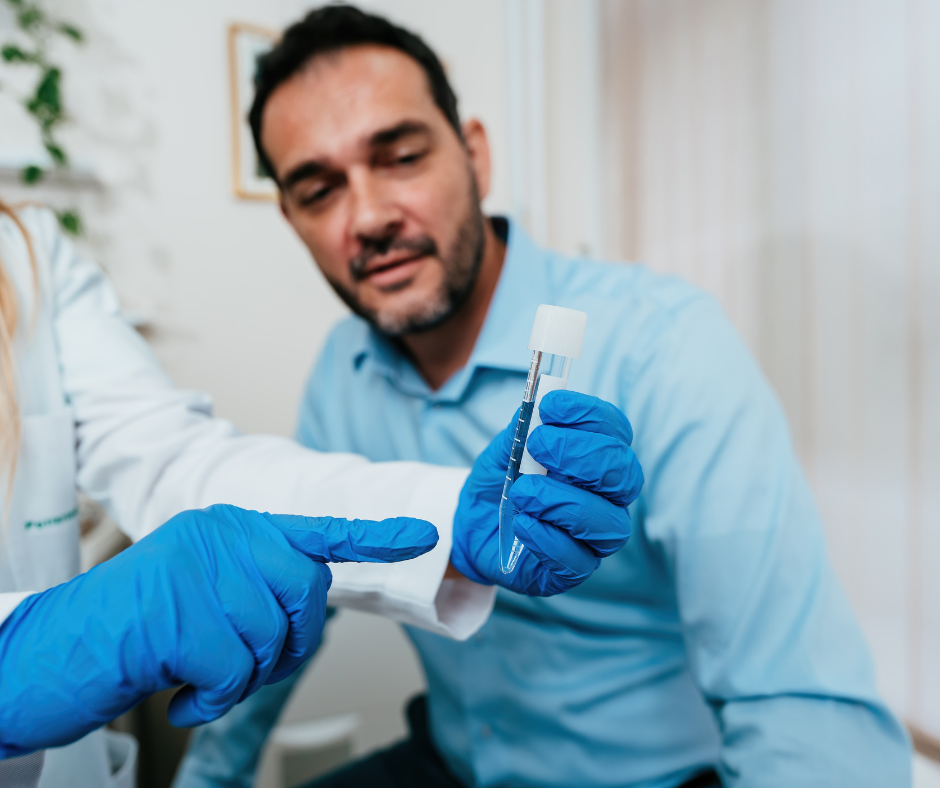February 13, 2026
Hudson Valley fertility: 7 Heartfelt Ways to Celebrate Love and Hope This Valentine’s Day Hudson Valley fertility support is about more than medicine, it’s about community, compassion, and hope. Discover meaningful Valentine’s Day ideas tailored to local families across the Hudson Valley. Valentine’s Day is often filled with roses, candlelit dinners, and sweet notes tucked into cards. But for many couples navigating Hudson Valley fertility challenges, this holiday can stir up mixed emotions. Love is still at the center, but so is hope, resilience, and the dream of growing a family. If you’re in the beautiful Hudson Valley , you’re surrounded by more than scenic views and historic towns. You’re part of a close-knit, compassionate community. This Valentine’s Day, let’s shift the focus from pressure to partnership, and explore meaningful, local ways to celebrate love while honoring your fertility journey. Why Valentine’s Day Feels Different During a Fertility Journey Valentine’s Day can sometimes feel like it’s all about babies, growing families, and picture-perfect love stories. When you’re trying to conceive, that can be hard. Social media posts, store displays, and even well-meaning conversations can feel overwhelming. But here’s the truth: love is bigger than timelines. Whether you’re just starting treatment, exploring options, or simply having conversations about your future, your relationship deserves recognition. This season can become a powerful reminder that your bond is strong—no matter where the journey leads. Understanding Hudson Valley fertility Support and Community Resources The Hudson Valley isn’t just a postcard-perfect destination. It’s home to respected medical providers, wellness centers, and community groups that understand the emotional and physical sides of fertility care. Local Access to Compassionate Care From Poughkeepsie to Rhinebeck , couples have access to leading medical networks, including facilities affiliated with Vassar Brothers Medical Center . These centers provide reproductive health services and referrals to fertility specialists throughout the region. Many families also travel to nearby areas such as Beacon and New Paltz for holistic wellness services that complement medical treatment, like acupuncture, counseling, and nutrition support. For national guidance on fertility health, the CDC provides reliable educational resources here: https://www.cdc.gov/reproductivehealth/infertility/ Emotional Support Close to Home The Hudson Valley is known for its strong sense of community. Local support groups, faith communities, and wellness centers often host small gatherings where couples can share their experiences in a safe space. On Valentine’s Day, consider connecting with a counselor or support group if emotions feel heightened. It’s not a sign of weakness, it’s a sign of strength. 7 Meaningful Valentine’s Day Ideas for Couples Facing Fertility Challenges Instead of traditional celebrations that might feel triggering, try these thoughtful, locally inspired alternatives. 1. Take a Scenic Winter Walk Together Bundle up and stroll along the iconic Walkway Over the Hudson . The sweeping river views are breathtaking in winter, and the quiet atmosphere makes space for honest conversations. Sometimes, the best therapy is fresh air and time together. 2. Plan a Cozy Hudson Valley Staycation The Hudson Valley is known for charming inns and boutique hotels. Book a one-night getaway in a nearby town and disconnect from daily stress. Bring books, order room service, and focus solely on each other. No pressure. No expectations. Just presence. 3. Create a “Future Dreams” Date Night Light candles at home and write letters to your future family—or to each other. Share hopes, fears, and dreams. Even if the path feels uncertain, putting words to your vision can feel empowering. 4. Support Local Businesses Together Visit a local chocolatier, florist, or farm-to-table restaurant. Keeping your Valentine’s plans rooted in the Hudson Valley community adds meaning and connection. 5. Try a Couples Wellness Experience Book a massage, yoga session, or acupuncture appointment together. Many local wellness providers in Rhinebeck and New Paltz specialize in stress reduction, which can play a key role in reproductive health. 6. Volunteer or Give Back Channel your love outward. Volunteer at a local shelter or donate to a family-focused nonprofit. Giving back can help shift focus from what feels missing to what you can offer. 7. Redefine What Romance Means Romance doesn’t have to mean baby announcements or big gestures. It can mean: Holding hands during appointments Making each other laugh on tough days Saying “we’re in this together” That’s powerful love. How to Communicate with Your Partner During Fertility Treatment Open communication is the backbone of any relationship, but especially during fertility care. Here are practical tips: Schedule regular check-ins. Talk about emotions outside of medical appointments. Use “I feel” statements. Avoid blame and focus on your own experience. Allow different coping styles. One partner may want to talk constantly; the other may need quiet reflection. Both are valid. Celebrate small wins. Even scheduling a consultation can be progress. This Valentine’s Day, consider setting aside time specifically for gratitude. Tell your partner what you appreciate about them—not just in this journey, but in life. Self-Care Tips for Valentine’s Day in the Hudson Valley If the holiday feels heavy, that’s okay. You can still create a day that feels meaningful. Spend time in nature along the Hudson River. Journal your thoughts while sipping coffee at a local café. Limit social media if it feels overwhelming. Schedule a therapy session before or after the holiday. Remember: your emotions are valid. It’s okay to feel hopeful and heartbroken at the same time. The Power of Community in Hudson Valley fertility Journeys One of the greatest strengths of the Hudson Valley is its people. Neighbors check in. Friends rally around each other. Local businesses remember your name. Fertility journeys can feel isolating, but they don’t have to be. When you lean into your local support system, whether through medical providers, wellness practitioners, or community groups, you’re reminding yourself that you’re not walking alone. Valentine’s Day can become less about comparison and more about connection. Frequently Asked Questions 1. How can couples in the Hudson Valley cope with Valentine’s Day during fertility treatment? Focus on meaningful, low-pressure activities like scenic walks, wellness appointments, or quiet dinners at home. Shift the emphasis from outcomes to connection. 2. Are there fertility support resources locally? Yes. The Hudson Valley offers medical networks, counseling services, and holistic wellness providers across towns like Poughkeepsie, Rhinebeck, Beacon, and New Paltz. 3. Is it normal to feel sad on Valentine’s Day while trying to conceive? Absolutely. Mixed emotions are common. Acknowledging them instead of suppressing them can help you process the holiday in a healthier way. 4. What are some romantic but low-stress ideas for couples? Staycations, couples massages, journaling together, or nature walks are all intimate without added pressure. 5. How can partners better support each other? Communicate openly, respect different coping styles, and schedule intentional time to connect emotionally. 6. Does stress affect fertility? While stress alone doesn’t cause infertility, high stress levels can impact overall well-being. Stress-reduction techniques such as mindfulness, exercise, and counseling may support overall health. Conclusion: Celebrating Love, Strength, and Hope This Valentine’s Day, redefine what celebration means. Love isn’t measured by timelines, test results, or announcements. It’s measured by commitment, compassion, and courage. In the heart of the Hudson Valley, surrounded by river views and resilient communities, your journey is part of a bigger story, one rooted in hope. Whether you spend February 14th walking above the river, sharing a quiet dinner, or simply holding hands at home, remember this: Love is already here. And that’s worth celebrating.












